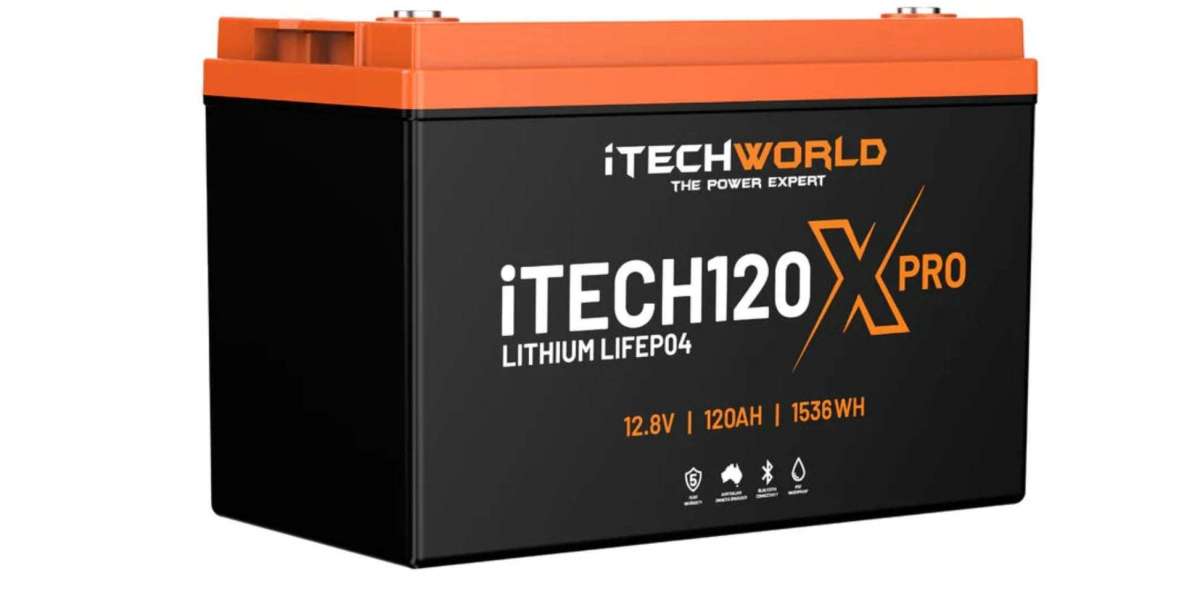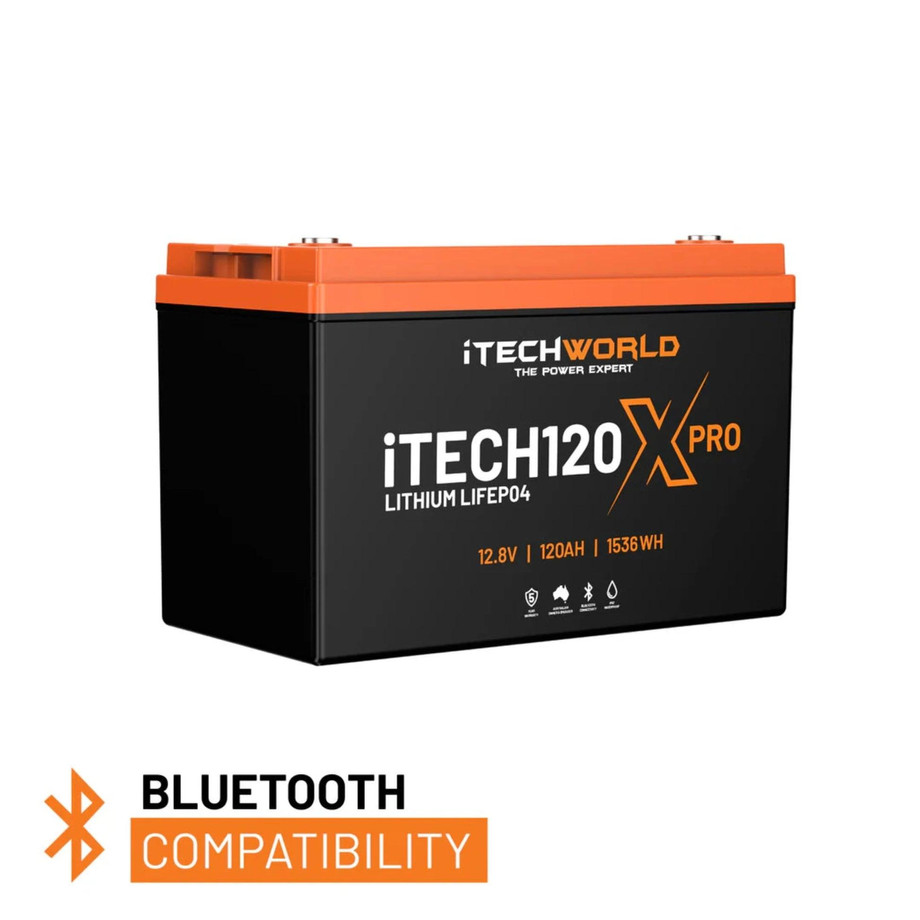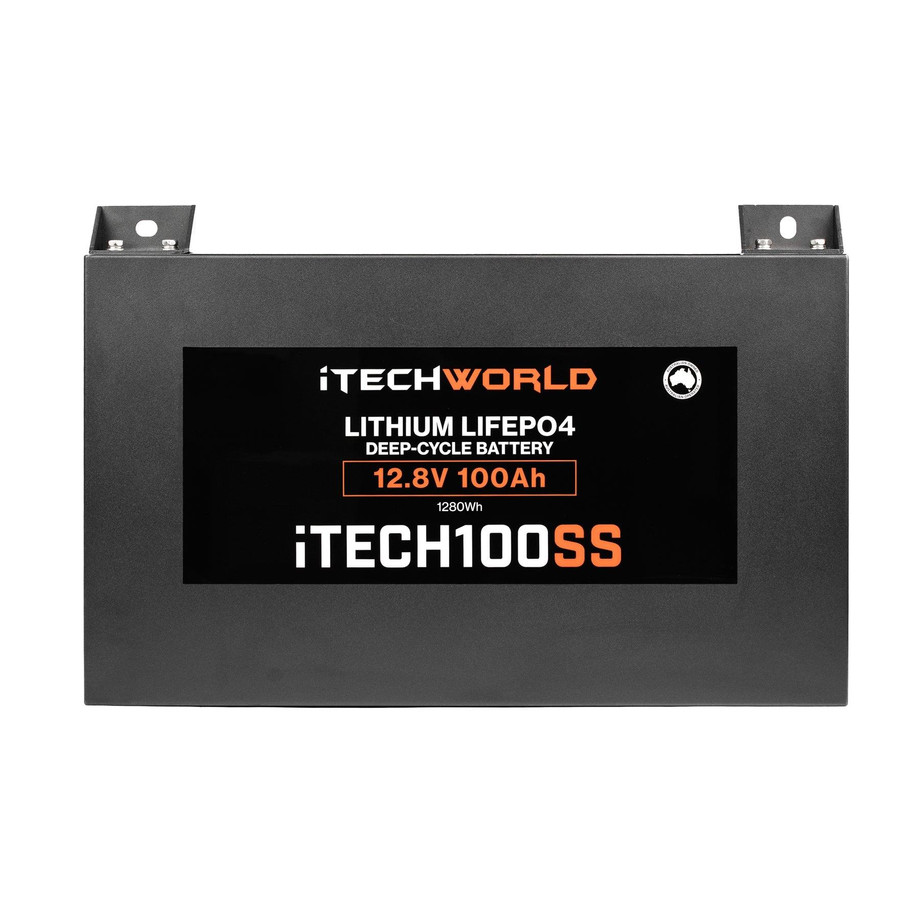As the world embraces renewable energy solutions and the demand for efficient power storage increases, lithium batteries have become a top choice for both residential and commercial applications. Among the most popular options are the 100ah lithium battery and the 120ah lithium battery. These batteries are recognized for their efficiency, long life, and ability to power a variety of devices and systems. If you’re considering investing in these energy storage solutions, this guide will help you understand everything you need to know.
Why Lithium Batteries?
Before diving into the specifics of 100ah and 120ah lithium batteries, it's important to understand why lithium batteries are favored over other battery types like lead-acid or nickel-cadmium.
Higher Energy Density: Lithium batteries have a much higher energy density than traditional batteries, meaning they can store more energy in a smaller space. This is especially useful for applications where space and weight are critical, such as in RVs, solar energy storage, and boats.
Longer Lifespan: Lithium batteries typically last much longer than their lead-acid counterparts. While a lead-acid battery might last 300 to 500 cycles, a lithium battery can last up to 5,000 cycles, making it a more cost-effective option in the long run.
Faster Charging: Lithium batteries can be charged much faster than traditional batteries, which is a major advantage for users who need to minimize downtime.
Lightweight: One of the most significant benefits of lithium batteries is their lightweight nature, making them ideal for mobile applications like electric vehicles, drones, and portable power stations.
What Is a 100ah Lithium Battery?
A 100ah lithium battery is a battery that can provide 100 amp-hours of current. In simpler terms, it can supply 1 amp of current for 100 hours or 10 amps for 10 hours. This makes it suitable for a wide range of applications, from powering off-grid solar systems to running electric vehicles.
Benefits of a 100ah Lithium Battery
Long-Lasting Power: A 100ah lithium battery can provide a steady amount of power over an extended period, making it ideal for energy storage systems in homes, RVs, or boats.
Compact and Lightweight: Lithium batteries are significantly lighter and more compact compared to lead-acid batteries, making them easy to install in places with limited space.
High Efficiency: These batteries have an impressive energy efficiency, meaning that very little energy is lost during charging and discharging.
Environmentally Friendly: Lithium batteries are more environmentally friendly compared to other battery types as they contain fewer toxic materials and are more energy-efficient.
Applications of a 100ah Lithium Battery
Solar Energy Storage: A 100ah lithium battery is a popular choice for solar energy storage systems. It can store energy generated by solar panels during the day for use at night or during periods of low sunlight.
RVs and Campers: For those who love off-grid adventures, a 100ah battery can power essential electronics and appliances in an RV or camper.
Electric Vehicles: Many electric vehicles use lithium batteries due to their lightweight nature and high energy density.
What Is a 120ah Lithium Battery?
A 120ah lithium battery is similar to a 100ah battery, but it can store and provide 120 amp-hours of current. This means it has a larger capacity and can run devices for a longer time before needing to be recharged.
Benefits of a 120ah Lithium Battery
Higher Capacity: With a 120ah battery, you get an additional 20 amp-hours of power compared to a 100ah battery. This can be crucial in applications where you need more energy storage.
Same Lightweight and Compact Design: Despite its higher capacity, the 120ah lithium battery remains compact and lightweight, making it suitable for portable and mobile applications.
Extended Lifespan: Like the 100ah version, a 120ah lithium battery can last for thousands of cycles, making it a reliable long-term investment.
Applications of a 120ah Lithium Battery
Backup Power Systems: For homes or businesses that need a reliable backup power source, a 120ah lithium battery provides more storage capacity for critical appliances during outages.
Marine Applications: Boats and yachts often use lithium batteries to power navigation systems, lights, and other essential equipment, and a 120ah battery offers an extended runtime.
Energy-Intensive Devices: Devices or systems that require more power over longer periods, such as large solar systems or industrial machinery, can benefit from the extra capacity of a 120ah battery.
How to Choose Between a 100ah and 120ah Lithium Battery
Choosing between a 100ah lithium battery and a 120ah lithium battery depends on several factors:
Power Requirements: Determine how much energy your devices or systems require. If you need more runtime and have energy-intensive devices, a 120ah battery might be a better option. However, if you have moderate power needs, a 100ah battery should suffice.
Space and Weight Constraints: While both batteries are relatively lightweight and compact, if you have strict space or weight limitations, a 100ah battery might be more suitable due to its smaller size.
Budget: A 120ah battery generally costs more than a 100ah battery, so your budget will also play a role in your decision.
Application: Consider the application you’re using the battery for. For example, if you’re powering an RV with moderate energy needs, a 100ah battery should work well. But if you’re using it for a larger solar energy storage system, a 120ah battery may be a better choice.
Conclusion
Whether you choose a 100ah lithium battery or a 120ah lithium battery, both offer numerous advantages over traditional batteries, including higher efficiency, longer lifespan, and lightweight design. These batteries are versatile and can be used in a variety of applications, from powering off-grid homes to running electric vehicles.
When selecting the right battery, consider your power requirements, budget, and application to make the best decision. By investing in a high-quality lithium battery, you can ensure reliable energy storage for years to come.









